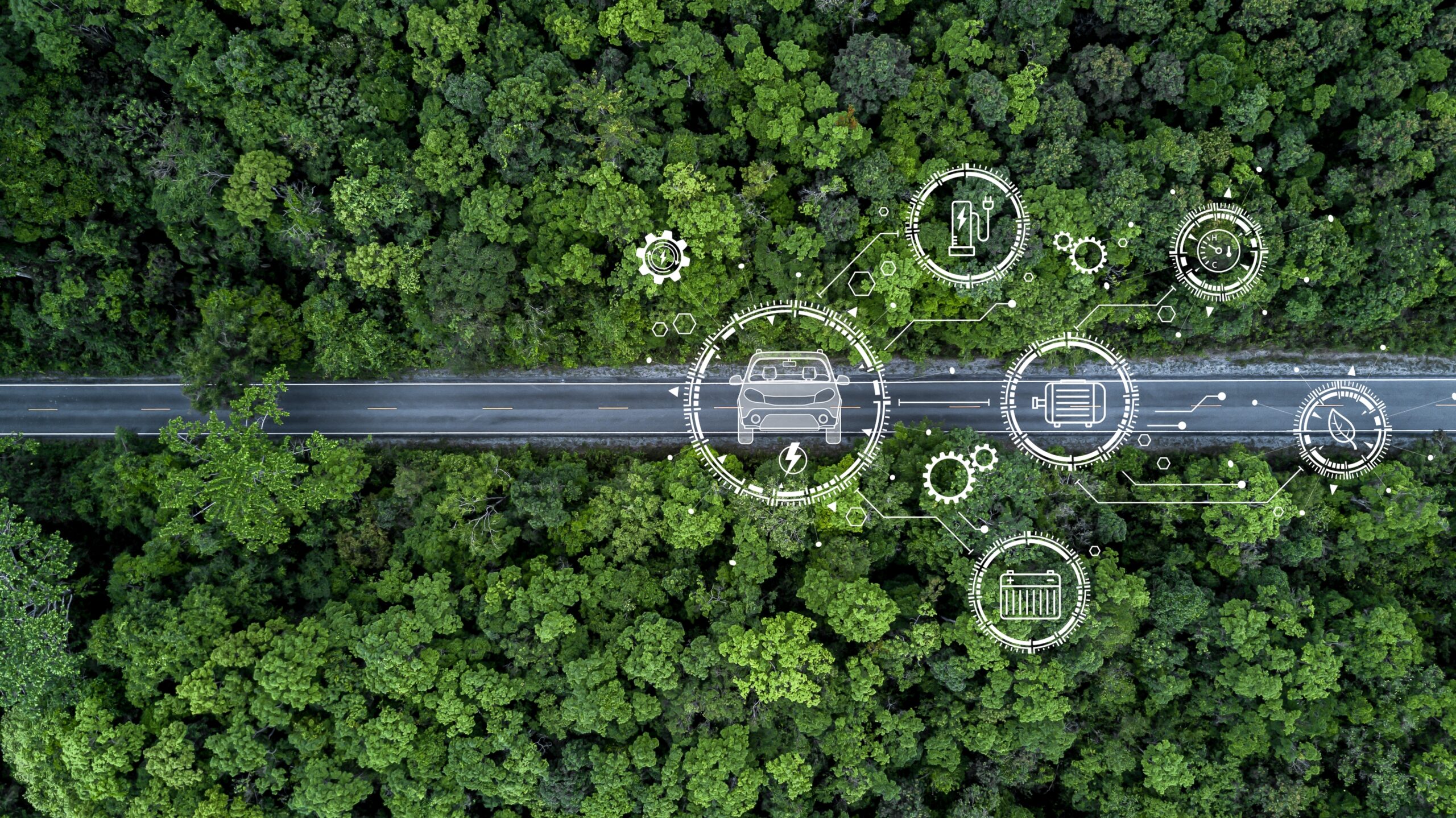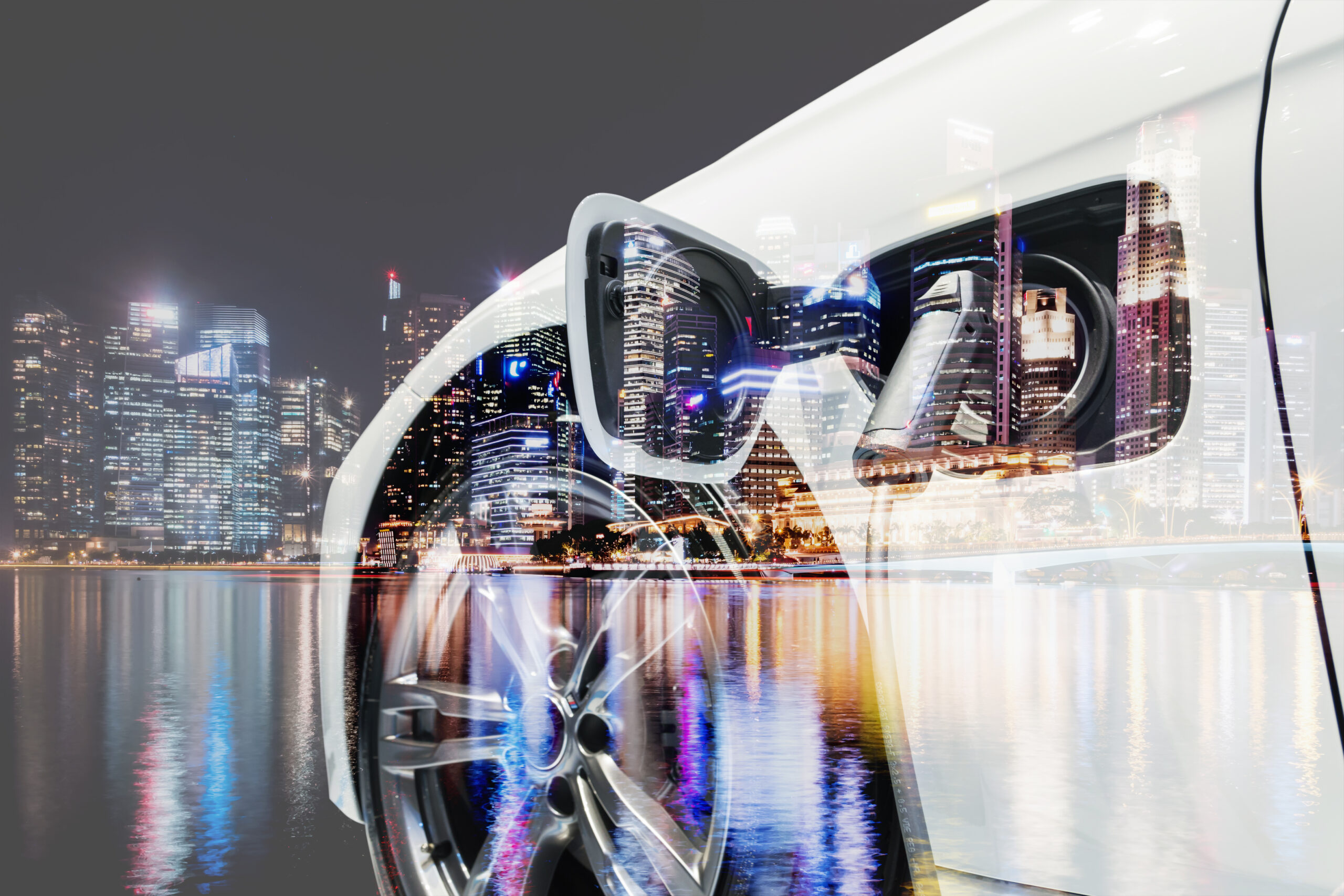
Cleaner and more environmentally friendly mobility future
Passenger and freight transport are significant contributors to global greenhouse gas emissions, accounting for almost 25% of the total. Through ERTICO platforms, projects and partners, we are a key contributor to delivering cleaner, greener and more efficient climate-neutral mobility and transport.
The world of Clean & Eco-Mobility is changing rapidly, from an increasing number of cities implementing low-emission zones to the fact that, in 10 years, electric vehicles will have a range of 1,000 kilometres on a single fast charge. ERTICO has a comprehensive approach to advancing sustainable mobility, reducing pollution and improving air quality, extending beyond technological innovation to reflect user requirements, inclusiveness and societal needs. The Just Transition Mechanism (JTM) is an important tool to ensure the move to a climate-neutral economy happens in a fair way, leaving no one behind.
A decarbonised future will be one of the more efficient transport systems and greener mobility infrastructure, using zero-emission vehicles (ZEVs) including e-buses, e-trucks, micro-mobility and battery electric frugal cars. We also track developments in other fuels: for example, OEMs developing alternative internal combustion engines that use pure hydrogen, meaning no harmful tailpipe emissions – only water.
Our work aligns with the 2Zero Partnership (towards zero-emission road transport), which includes being involved in co-drafting its ambitious Strategic Research and Innovation Agenda (SRIA). 2Zero aims to accelerate the transition to zero tailpipe emission road mobility through R&I, for all types of passenger and freight vehicles, and with an integrated system approach covering both Battery Electric Vehicles (BEV) and Fuel Cell Electric Vehicles (FCEV). Many projects in ERTICO’s portfolio come under the 2Zero banner.
While supporting EU emissions targets is key for our roadmap, it also highlights important milestones in the collaborative journey towards the widespread adoption of zero-emission mobility. The electrification of transport and electro-mobility are of course central; we are actively involved in advancing the development and deployment of interoperable EV infrastructure and eco-mobility solutions, integrated with user-centric approaches such as Mobility-as-a-Service (MaaS). We continue to work closely with the MaaS Alliance.
SOLUTIONSplus, a flagship project running to mid-2024, aims to establish a global platform for shared, public and commercial low-carbon electro-mobility solutions. Designed to enable transformational change, ERTICO leads the project’s activity involving clean energy start-ups worldwide, helping to develop innovative light electric vehicles for multiple uses: eco-mobility with a purpose.
The ZEV-UP project, coordinated by ERTICO and part of 2Zero, looks to develop zero-emission emission, multi-purpose and modular frugal BEVs for passengers and goods. The ZEV-UP vehicle will consist of three variants adapted to different needs that reuse materials for sustainability, with a swappable battery to reduce user costs and improve energy efficiency.
Crossing into the freight and logistics sphere, the NextETRUCK project, coordinated by ERTICO Partner TNO, is also within 2Zero. Working towards efficient and affordable zero-emission logistics with next-generation electric trucks, the goal is to decarbonise truck fleets and increase energy efficiency via zero-emission electric medium freight haulage.
In public transport, eBRT2030 is exploring a new generation of electric Bus Rapid Transit (BRT) systems. With pilot sites in six cities in Europe and one in South America, the objective is to improve public transport while tackling climate change and air pollution.

ERTICO is also a partner in the LeMesurier Coordination Support Action (CSA) that will determine common methodologies and an evaluation framework to measure multiple key performance indicators arising from 2Zero. This will bring new opportunities to assess the potential of projects and other 2Zero contributions, extending to issues such as total cost of ownership (TCO) of EVs.
The metaCCAZE project also supports the transition to electric, automated and connected urban mobility. These activities build on knowledge from earlier projects such as MODALES, which concluded in 2023. This sought to reduce emissions and air pollution from all types of on-road vehicles by encouraging low-emission driving behaviour and proper maintenance choices.
The eCharge4Drivers project, which concludes in 2024, has a similar user-centric approach, developing and demonstrating people-friendly charging stations, smart services and charging solutions.
ERTICO’s City Moonshot will publish its second report in 2024, now covering more than 200 cities. Cities are declaring climate emergencies, measuring air quality, looking at public well-being, and adapting mobility strategies and transport policies based on green considerations. Activity can range from shorter-term measures such as implementing (Ultra) Low Emission Zones (LEZ and ULEZ), which bring significant implications for driver choices, to promoting alternatives such as walking and cycling, and EV MaaS public transport. ERTICO is uniquely placed to gather, assess, and share information in this area, enabling the cross-fertilisation of ideas and approaches.
Reflecting the approach and ethos of 2Zero, ERTICO itself has moved from the concept of green cars through green vehicles to the broader canvas of green mobility and greener transport systems. We deliver innovation and create new value through our platforms, partners and projects, working to reduce emissions and deliver greener, cleaner and more inclusive mobility for all.



